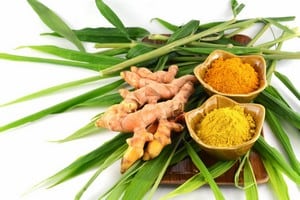Potentiating Immune Health
(Reprinted from Health Concerns)

Herbs and supplements can give patients control over their health. Patients who feel like they have some control over their bodies always do better than patients who are passive. Herbs are generally safer, are slower acting, and possess fewer side effects than drugs. In some cases, they can be more effective, such as some viral infections, drug-resistant bacterial conditions, and many digestive and gynecological complaints. Herbs are often used alongside standard care for conditions such as infertility, cancer, and HIV. Herbal medicine can also be used to offset the side effects of biomedical treatments such as chemotherapy.
In many patients diagnosed with immune or autoimmune conditions, herbal therapies can bring the immune system back into balance. Appropriately used tonic herbs can boost vitality and protect against infection. Anti-toxin herbs treat viral and bacterial conditions, while others have anti-fungal and anti-parasitic effects. Herbs can be used to increase blood circulation and alleviate pain.
A hallmark of Chinese herbal medicine is that it uses combinations of four to twenty herbs in a tea or tablet form. In contrast, Western herbalists usually use fewer combinations of herbs.
One benefit of Chinese herbal medicine is that the practitioner pays special attention to the individual’s constitution, or root health. The constitution can be determined by taking the patient’s history, along with looking at the tongue and feeling the pulse. For example, an elderly woman recovering from chemotherapy is treated much differently if she comes down with a cold or flu, than a strapping young athlete who has similar symptoms.
Chinese herbs are prescribed to balance a patient’s condition. If the patient feels hot and is running a temperature, the herbalist selects cooling herbs. In contrast, if the client feels cold and needs to put on sweaters when everyone in the house is in T-shirts, warming herbs are selected. The herbalist must always keep in mind the strength of the patient’s overall health relative to the severity of the illness.
An herbalist must make an accurate diagnosis, select the most appropriate herb or formula for the individual, and select the correct method of administration and preparation.

Add Comment